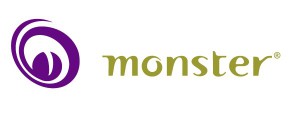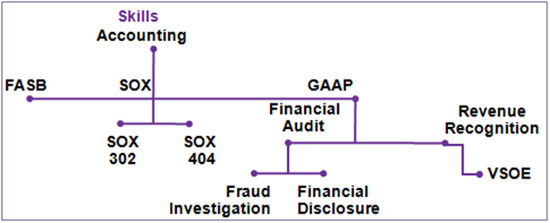 Today’s installment is courtesy of guest blogger Brock Vaughters. Brock is an Account Manager with Monster®, the worldwide leader in successfully connecting people to job opportunities. Monster Worldwide, Inc. (NYSE:MWW), is the global leader in successfully connecting job opportunities and people. Monster uses the world’s most advanced technology to help people Find Better, matching job seekers to opportunities via digital, social and mobile solutions including monster.com®, our flagship website, and employers to the best talent using a vast array of products and services. As an Internet pioneer, more than 200 million people have registered on the Monster Worldwide network. Today, with operations in more than 40 countries, Monster provides the broadest, most sophisticated job seeking, career management, recruitment and talent management capabilities globally. For more information visit about-monster.com.
Today’s installment is courtesy of guest blogger Brock Vaughters. Brock is an Account Manager with Monster®, the worldwide leader in successfully connecting people to job opportunities. Monster Worldwide, Inc. (NYSE:MWW), is the global leader in successfully connecting job opportunities and people. Monster uses the world’s most advanced technology to help people Find Better, matching job seekers to opportunities via digital, social and mobile solutions including monster.com®, our flagship website, and employers to the best talent using a vast array of products and services. As an Internet pioneer, more than 200 million people have registered on the Monster Worldwide network. Today, with operations in more than 40 countries, Monster provides the broadest, most sophisticated job seeking, career management, recruitment and talent management capabilities globally. For more information visit about-monster.com.
Google’s doing it! Apple’s doing it! Microsoft’s doing it! Oracle’s doing it! Are you doing it? Wait… Wait… What is everybody doing?
Well, it’s called semantic searching. It is hard to explain in words (because it doesn’t use keywords), but it uses the concepts behind words – and the context of those words in relation to every other word – in order to search information and return results. If that explanation is still a little fuzzy, let me give you an example.
If a recruiter were looking for a programmer’s resume, using semantic search, he could simply type in the word ‘programmer’, and the system will automatically find matching concepts like Software Developer, J2EE Engineer, and .Net Technical Lead, without having to construct a complicated Boolean string.

At Monster, with our Power Resume Search, the best part about using semantic search is that you don’t have to understand the technology to use it effectively. Maybe the most surprising aspect of semantic search is that it lets you describe who you’re looking for, almost as if you were speaking with a networking contact who knew all the top candidates out there.
So let’s answer the title question of this post, “Will Semantic Search Reshape Global Recruiting?”
Do companies still need recruiters when semantic search is available? The fact is that most employers who have been using recruiters will find that these human experts will remain essential to the sourcing, recruiting and hiring cycles.
The goal with any advancement in technology is to improve the process and make it user- friendly. The key here is the word “user.” Semantic search will allow global recruiters to do what they do best, which is develop relationships, screen out candidates that look good on paper but aren’t a great fit for one reason or another. Remember that semantic searching using Monster’s Power Resume Search will bring the best candidates to the top of the list, but then the best recruiters take that list and make actual placements. At Monster, our goal is to give the best recruiters the best tools to find that best candidates. Recruiters are a big part of this process.
How much time would you save if your recruiters had a tool that could:
- Recognize a candidate’s breadth and depth of experience?
- Identify job hoppers from long-tenured employees?
- Distinguish “must have” vs. “nice to have” skills?
- Assess a candidate’s context of experience (i.e. 3 months vs. 10 yrs)?
- Score a candidate based on recent vs. outdated skills?
- Automatically identify related skills?
- Understand the latest industry acronyms?
Monster Power Resume Search uses Monster’s patented 6Sense technology to do all of these things — at lightning speed. How much is your time worth?
 This week I read an interesting article by Jason Warner, Founder at RecruitingDash, about trends that are creating a challenging landscape for employers and independent recruiters. Economic factors, candidate behaviors and increasing social media usage is reshaping the way independent recruiters connect with candidates and vice versa. According to Jason, “There’s a bit of a perfect storm that has happened as a result of all the trends that have played out in the last few years.”
This week I read an interesting article by Jason Warner, Founder at RecruitingDash, about trends that are creating a challenging landscape for employers and independent recruiters. Economic factors, candidate behaviors and increasing social media usage is reshaping the way independent recruiters connect with candidates and vice versa. According to Jason, “There’s a bit of a perfect storm that has happened as a result of all the trends that have played out in the last few years.”








